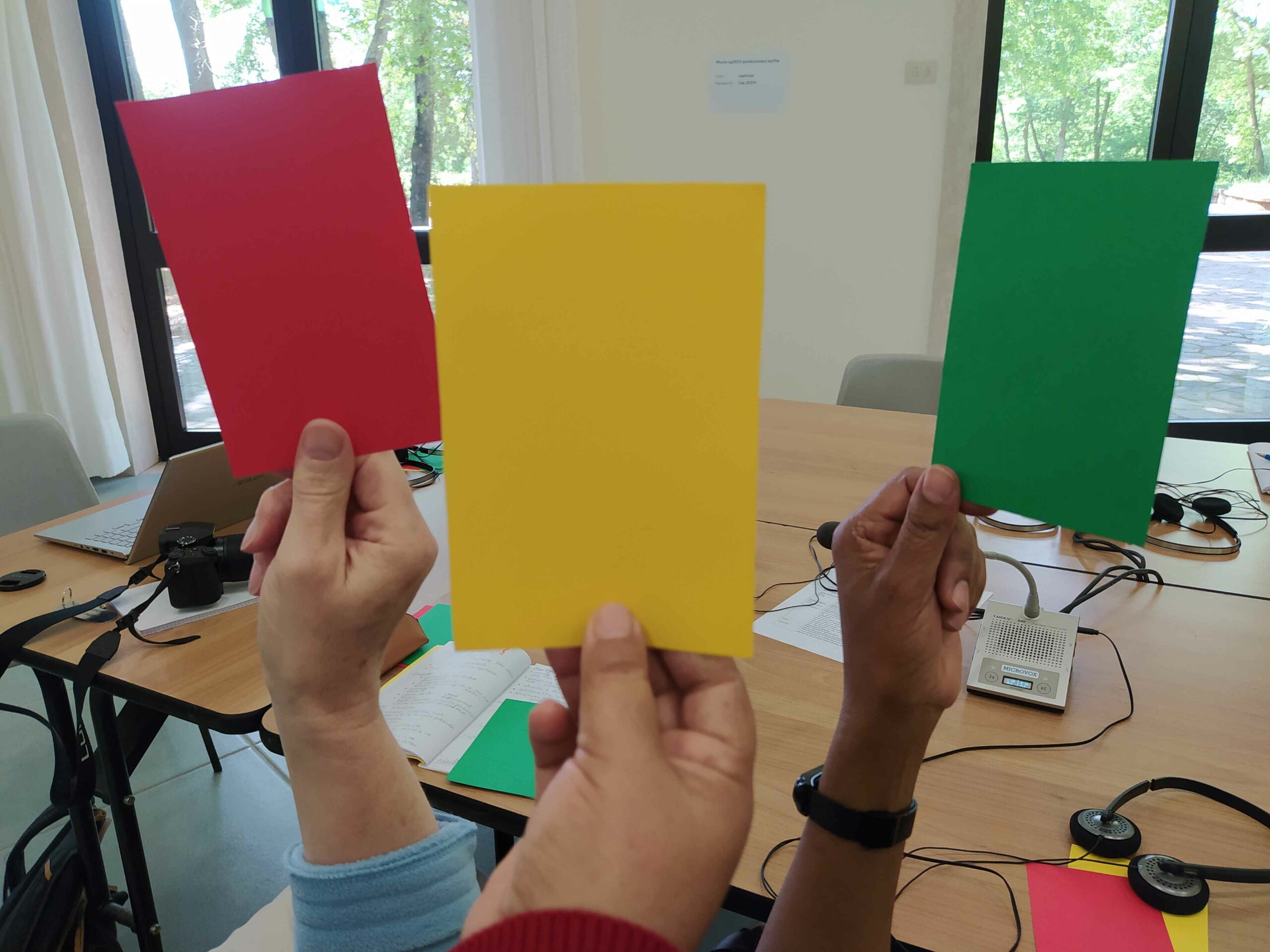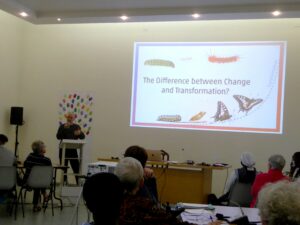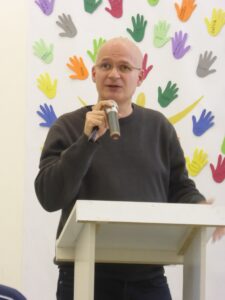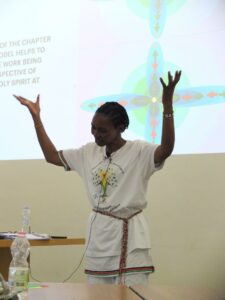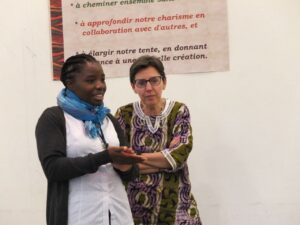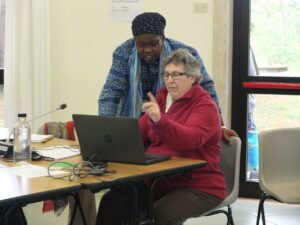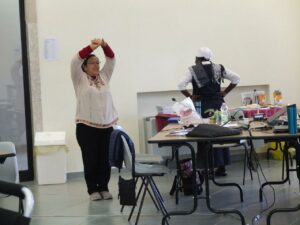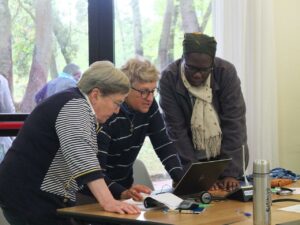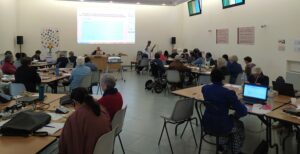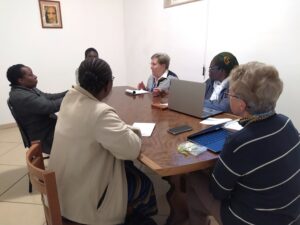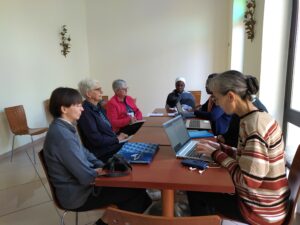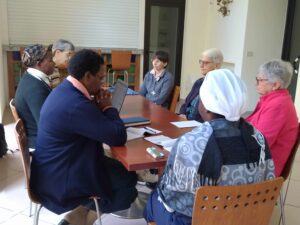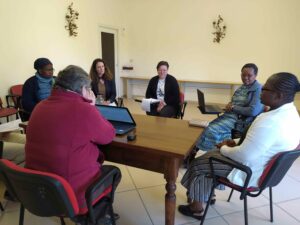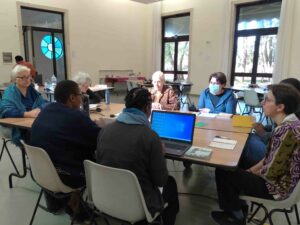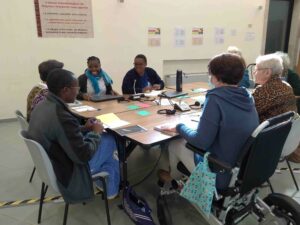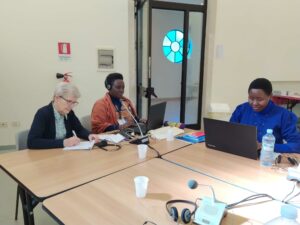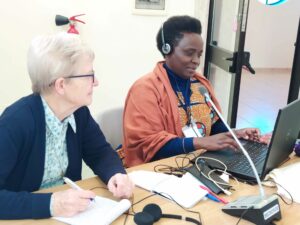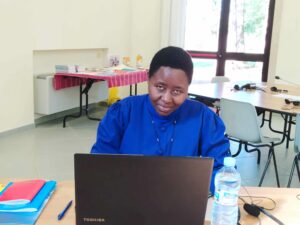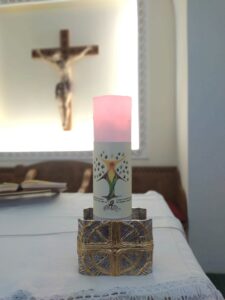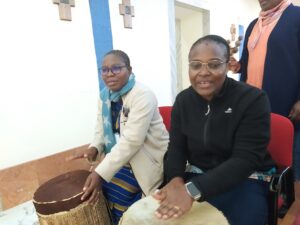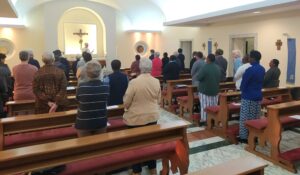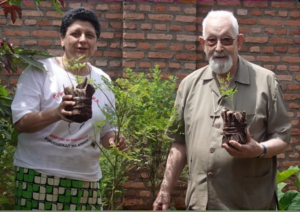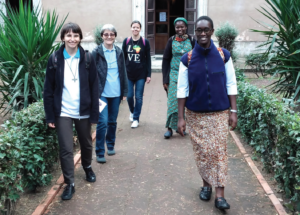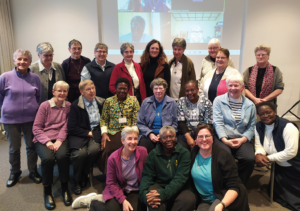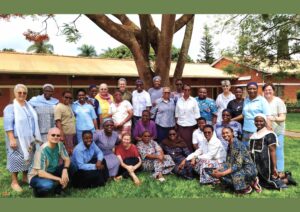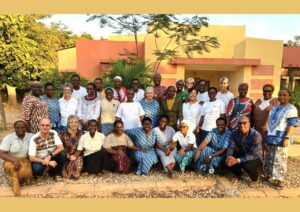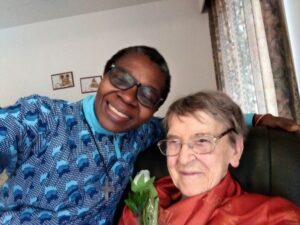On Thursday May 4th each working group chose its name in relation with nature. The names chosen were: breath of life, source, mango tree, Monarch butterfly and olive light. The groups worked at choosing the themes that will be worked on during the chapter.
The “Butterfly organic model” will be used during the Chapter as a main model of discernment. This model invites us to focus on the present moment. The desired individual and organizational transformation starts with the lived experience of the Chapter. It provides a framework for broad exploration by making conscious connections between the present moment–where information resides, our past experiences and the desired future. It aims at sustainable solutions.
The Co-Facilitators, Yago and Selina, presented to the Capitulants the “Butterfly Framework” and explained how it was going to be used as a tool that would support transformation processes and the implications (consequences that unfold in the here and now) in the discernment process.
This framework allows for creativity and the integration of different methods for transformation. The chapter as a whole opted for “life” and for “transformation” for the entire congregation and for each MSOLA and to keep that life growing. The capitulants were invited to learn about transformation from nature. Like the caterpillar has to let go of its being a caterpillar to become a beautiful butterfly and be able to fly, in our process of transformation to something NEW, we too need to let go of our old being, to let the new being become and grow. But each stage of the process needs its time to evolve… The butterfly has to spend time being a caterpillar, a cocoon, to finally become a butterfly. Am I ready to pay the price of being where I am now?
The theme of the chapter calls us to give life to a new creation. To give life is a joyful process, but it also implies pain. Are we ready to pay the price of transformation? Am I ready to bypass the pain of giving birth to new life? Sustaining life needs sacrifice and has difficulties. Am I ready to pay the price of transformation? To be touched by life? To support another life, so that another life can come into existence?
When we see a big stone on our way, we see it as an obstacle, but it can become an opportunity as well. In our life we have green moments of joy that have been lifegiving and that energize us. We may also find obstacles, but we are not victims of these obstacles. How may we change our view of these obstacles to find gold in them so as to allow the energy to flow?
In the homily we were reminded that to believe in and trust God is to consider that even in the darkest moments of our lives, when things are not going well, God is there. He is present in the reality of our lives. He is with us in our boat and in difficult situations. He tells us “Do not fear; the things you fear may well happen to you, but you must not fear them.” They are not to be feared, not because God will remove difficulties and obstacles from our lives, but because God is present even in the difficult moments and because, in Jesus Christ, he has shown himself to be stronger than death and all forms of evil.
This is why the English mystic Julienne of Norwich wrote:
“All things will end well. All things, whatever they are, shall be well”.
“All shall be well, and all shall be well, and all manner of things shall be well”.


